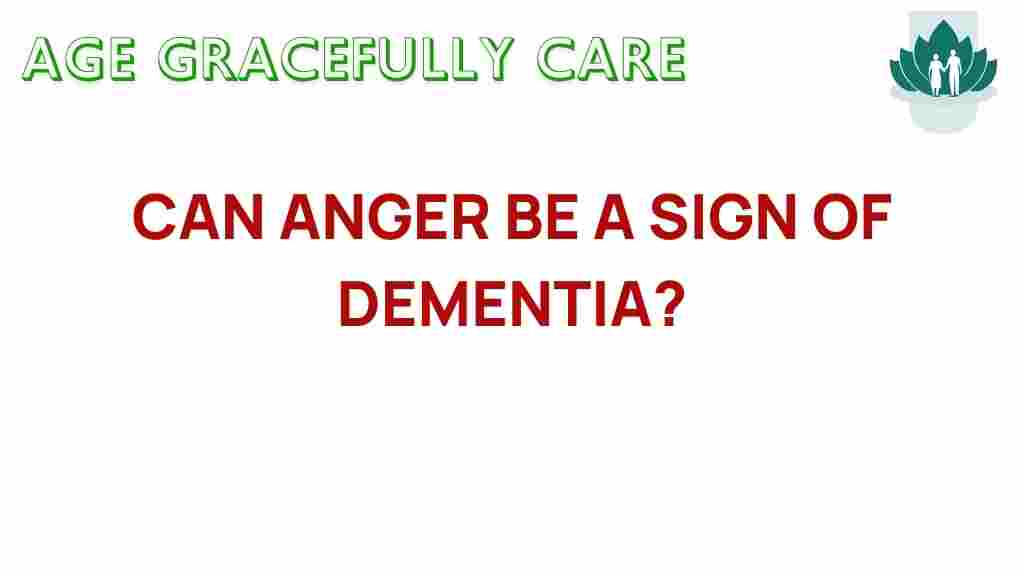Is Anger a Hidden Indicator of Dementia?
Dementia is a complex condition that affects millions of seniors worldwide. While memory loss and cognitive decline are often the most recognized signs, emotional health, particularly anger, can also play a significant role in understanding this disease. Many caregivers and family members may not realize that sudden or increased anger can indicate underlying issues related to dementia. In this article, we will explore the connection between anger, cognitive decline, and behavioral changes, offering insights and care strategies to support senior health and mental wellness.
Understanding Dementia and Its Symptoms
Dementia is an umbrella term for a range of cognitive impairments that interfere with daily life. It encompasses various conditions, including Alzheimer’s disease, vascular dementia, and more. Recognizing the signs of dementia early can lead to better management and care strategies. Common symptoms include:
- Memory loss
- Difficulty communicating
- Confusion about time or place
- Impaired judgment
- Changes in personality or behavior
As the disease progresses, individuals may show more pronounced behavioral changes, including increased irritability and anger. Understanding these changes is crucial for caregivers and loved ones.
The Link Between Anger and Cognitive Decline
Anger can emerge as a response to frustration or confusion, often seen in individuals experiencing cognitive decline. Here’s how anger can be connected to dementia:
- Frustration with Memory Loss: Individuals may feel angry when they cannot recall names, places, or recent events, leading to emotional outbursts.
- Loss of Independence: As dementia progresses, individuals may struggle to perform daily tasks, resulting in feelings of helplessness and anger.
- Changes in Brain Chemistry: Dementia can alter brain function, influencing emotional regulation and leading to increased irritability.
Recognizing these triggers can help caregivers implement effective care strategies to mitigate anger and improve emotional health.
Identifying Behavioral Changes in Dementia
Behavioral changes in individuals with dementia can manifest in various ways. Some common signs include:
- Increased agitation or restlessness
- Withdrawal from social activities
- Unexplained anger or irritability
- Difficulty controlling emotions
These changes can be distressing for both the individual and their caregivers. Understanding these signs is crucial for developing appropriate care strategies.
Care Strategies to Manage Anger in Dementia Patients
Managing anger in individuals with dementia requires a thoughtful approach. Here are some effective care strategies:
- Stay Calm: Responding to anger with calmness can help de-escalate situations. Speak in a soothing tone and maintain a peaceful environment.
- Identify Triggers: Keep a journal to note when anger episodes occur. Identifying triggers can help caregivers avoid or mitigate these situations.
- Use Distraction Techniques: Redirecting attention to a favorite activity or topic can often diffuse anger.
- Encourage Physical Activity: Exercise can reduce stress and improve mood, making it an essential part of mental wellness.
- Maintain Routine: A consistent daily routine can provide a sense of security and predictability, reducing anxiety and frustration.
Implementing these strategies can create a more harmonious environment for both caregivers and those experiencing dementia.
Troubleshooting Tips for Caregivers
Caregiving can be challenging, especially when dealing with anger and behavioral changes. Here are some troubleshooting tips:
- Seek Professional Help: If anger escalates or becomes unmanageable, consult with a healthcare professional for guidance.
- Educate Yourself: Understanding dementia and its effects on behavior can equip caregivers with the tools to handle difficult situations.
- Join Support Groups: Connecting with other caregivers can provide emotional support and practical advice for managing anger and emotional health.
- Practice Self-Care: Caregivers must prioritize their own mental wellness. Take breaks, seek respite care, and engage in activities that promote relaxation.
By following these tips, caregivers can better navigate the complexities of dementia care and support the emotional health of their loved ones.
Conclusion: Promoting Mental Wellness in Dementia Care
Anger can indeed be a hidden indicator of dementia, reflecting deeper issues such as frustration, confusion, or loss of independence. By recognizing the connection between anger and cognitive decline, caregivers can better understand behavioral changes and implement effective care strategies. Prioritizing emotional health and mental wellness not only benefits individuals with dementia but also enhances the overall caregiving experience.
As we continue to support senior health, it’s essential to foster environments that promote understanding, patience, and compassion. For more resources on dementia care, consider visiting this helpful guide. Together, we can make a difference in the lives of those affected by dementia.
For further information on Alzheimer’s disease and related conditions, check out these external resources.
This article is in the category Health and created by AgeGracefullyCare Team
